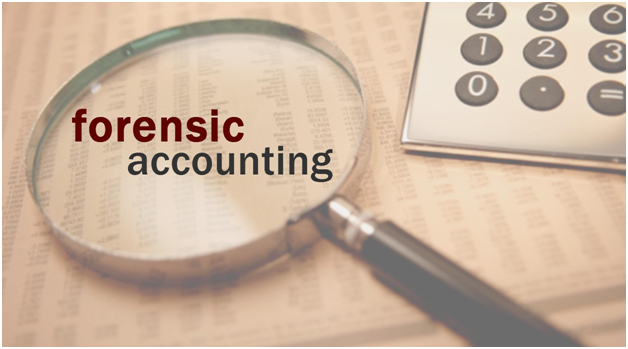How Does Forensic Accounting Work?

Most of us know about the term forensic due to numerous criminal dramas that we enjoy from television and streaming services. At the same time, the first association that pops in our minds after hearing forensic is some crime.
However, when it comes to financial forensics, they do not check bloodstains, fingerprints, and DNA from the crime scenes. Instead, they are investigating financial crimes that are, in most cases, more challenging to discover and prosecute.
If you wish to learn more about a forensic audit, you should click here for additional info.
The definition of forensics means implementing scientific knowledge to handle a particular legal issue that you can use in a court of law. That is why forensic accounting is a specialty field in the world of finances with an idea to detect a particular financial crime.
In most cases, forensic accountants need to handle crimes against property, which means that they are here to detect potential frauds that you can use further in court trials and testimonies.
Apart from legal disputes, they can also handle civil ones as well. Even though this particular activity is not as impressive as other forensics forms, it became highly popular in the last few years.
This is due to many financial crimes involving massive conglomerates such as Adelphia Communications and Enron scandals that became international news.
Basics of Forensic Accountants

You are probably thinking by now that these people are just number freaks that tend to work on civil or criminal disputes. However, they are much more than that, because they have to know about a wide array of computer programs, conduct a personal investigation and many more.
Some of them tend to specialize further in particular industries common for frauds, such as banking and insurance. Since numerous frauds tend to affect companies and individuals’ reputations, they have to be as discreet as possible throughout the investigation.
At the same time, they have to be both impartial and independent and consider numerous factors, including financial records. Compared with general accountants, they can efficiently conduct audits with an idea to detect potential fraud.
Apart from analyzing numerous financial statements, they can also check out court records and internal databases for additional information.
Since most people that tend to commit frauds have used numerous tricks to hide the evidence, forensics must check other statements that will allow them to reach the desired result.
It does not matter whether they are pursuing civil or criminal cases because they need to follow particular strategies that will allow them to conduct regular investigations.
The first step is to meet with attorneys, government representatives, and other people connected within the case to determine a particular fraud’s specifics.
Further, they start the investigation by planning the logistics, such as searching credit statements, bank statements, databases, ledgers, journals, memos, emails, and other things to give them a clear picture of a particular financial situation.
As soon as they obtain all relevant records, they will conduct interviews with involved parties and the accused to get different aspects of potential fraud.
Check out this site: https://www.forbes.com/sites/insights-kpmg/2018/07/16/forensic-auditing-three-trends-to-watch/ to learn more about auditing in general.
Of course, they need to have both communicational and observational skills that will allow them to pick up suspicious clues and hints that will lead them to a person who committed fraud.
We are talking about clues such as spending more time than earned, going on vacations, and creating other businesses with hidden capital.
Therefore, the process depends on a particular case, so the specifics are different in each situation. If the accountant is pursuing a criminal case, they have to work with a district attorney and law enforcement.
At the same time, they have to obtain subpoenas and warrants to locate precise information that will allow them to deal with the case. On the other hand, if they need to handle civil cases, they will get all the client information.
You should visit the Los Angeles accountants FB page to help you get an idea of how particular financial issues you’re experiencing are handled.
As soon as the accountant gathers relevant data and information, the analysis will start. He/she may trace the total loss and the reason it happened, hidden assets from the company, and determine whether particular transactions were legal or not.
Finally, they will prepare the comprehensive report that they will use in the court of law.